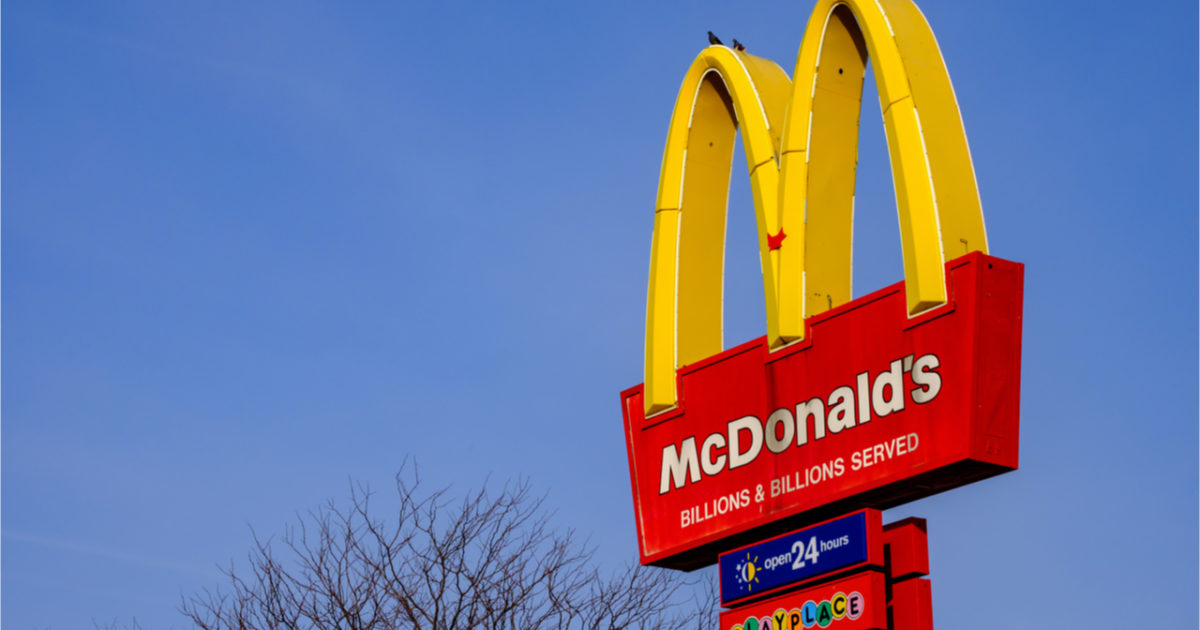Following a slew of well known brands filing trademarks for metaverse related products and virtual goods, the American fast food firm founded in 1940, McDonald’s, has filed for ten trademark applications that describe plans to offer virtual restaurants and other digital-based products.
10 McDonald’s Trademark Filings Discovered Mention Digital-Based Products Like Food and Beverages, Operable Virtual Restaurants
McDonald’s, home of the Happy Meal and the world’s largest restaurant chain by revenue, has filed for ten trademark applications, according to a recent tweet stemming from the trademark attorney Josh Gerben.
The filings recorded with the United States Patent and Trademark Office (USPTO) describe how McDonald’s plans to create “a virtual restaurant featuring actual and virtual goods.”
McDonald’s is headed to the metaverse.
The company has filed 10 (TEN!) trademark applications indicating it plans to offer “a virtual restaurant featuring actual and virtual goods” and “operating a virtual restaurant featuring home delivery.”#Mcdonalds #Metaverse pic.twitter.com/J9pK7EK9nl
— Josh Gerben (@JoshGerben) February 9, 2022
McDonald’s digital goods would include “virtual food and beverage products,” alongside “entertainment services” and “virtual concerts.” McDonald’s-themed metaverse worlds could feature a restaurant users can operate and order home delivery from the application as well.Responding to Gerben’s tweet, one individual said the move was “pretty cutting edge.”
“We know there will be virtual stores in the metaverse where [people] can come in [and] buy items. I never thought of a restaurant doing the same thing,” the individual added.
Furthermore, the move by the fast food restaurant giant is not the first time McDonald’s has shown interest in the digital world. On November 1, 2021, to celebrate the 40th anniversary of the cult-classic sandwich, the McRib, McDonald’s minted a limited number of McRib non-fungible tokens (NFTs).
“With the McRib NFT, you’ll never again have to say goodbye to the sandwich you love. Whether you score one or not, be sure to treat yourself to the legendary tangy BBQ flavor of the McRib, once it hits participating restaurants nationwide,” the company’s press release said at the time.
In addition to McDonald’s recently filing virtual goods trademarks, the chain Panera Bread filed trademark applications last week, according to Gerben’s findings. Crocs, New Balance, and Puma have all filed for USPTO trademark applications that describe virtual worlds and goods in recent times as well.
This year, the American multinational retail corporation that operates a chain of department stores, Walmart, registered USPTO trademark filings that hinted at the company’s intent to produce metaverse and NFT concepts.
What do you think about McDonald’s ten trademark filings that describe virtual fast food restaurants? Let us know what you think about this subject in the comments section below.
Image Credits: Shutterstock, Pixabay, Wiki Commons
Disclaimer: This article is for informational purposes only. It is not a direct offer or solicitation of an offer to buy or sell, or a recommendation or endorsement of any products, services, or companies. Cryptox.trade does not provide investment, tax, legal, or accounting advice. Neither the company nor the author is responsible, directly or indirectly, for any damage or loss caused or alleged to be caused by or in connection with the use of or reliance on any content, goods or services mentioned in this article.




